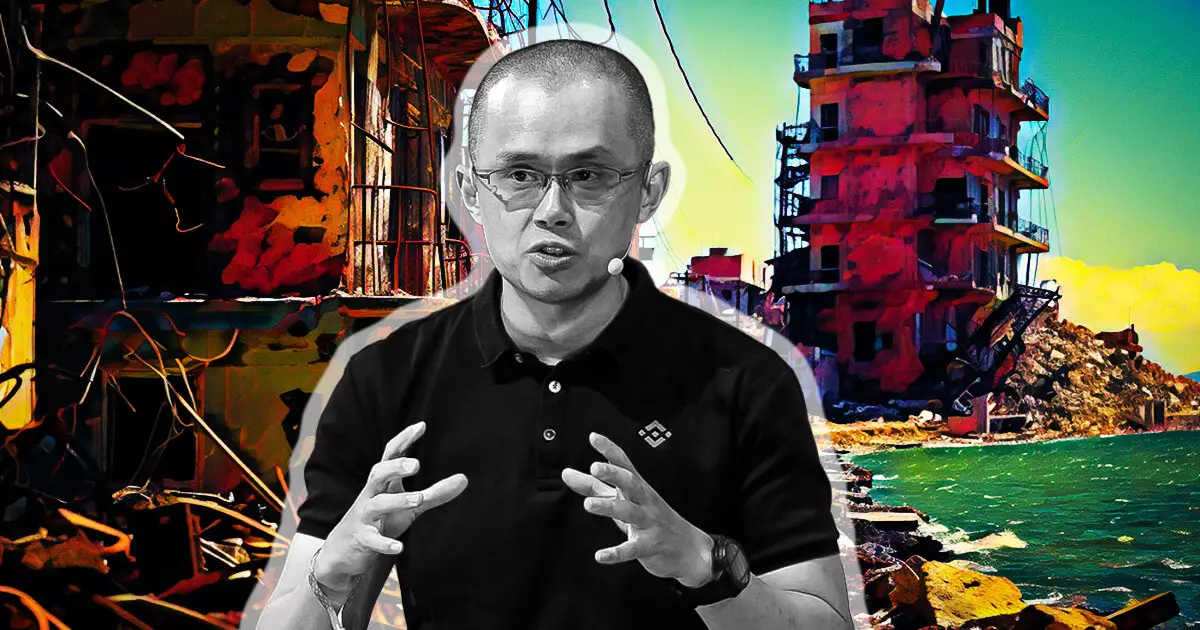The recent donation of $3 million worth of Binance Coin (BNB) by Binance Charity to victims of the Moroccan earthquake has sparked a heated debate surrounding the use of cryptocurrencies in humanitarian aid. Critics argue that immediate essentials like food and water are more crucial than crypto donations, labeling the act as a mere PR stunt. However, CZ Binance, the CEO of Binance, took the opportunity to address these criticisms and shed light on Binance Charity’s approach. This article critically analyzes the controversy and highlights the potential benefits of crypto-based donations in disaster relief efforts.
Speed, Transparency, and Accessibility
The advantages of crypto-based donations are evident when considering their speed, transparency, and accessibility. Traditional financial transactions can be slow and complicated, often leading to delays in providing aid. On the contrary, BNB Chain transactions can occur almost instantaneously, allowing for prompt assistance to those in need. The transparency of blockchain technology ensures that the flow of funds can be easily tracked, eliminating any concerns about misallocation or mismanagement. Additionally, cryptocurrencies can be converted into most local currencies globally, offering versatility in crisis response. This feature allows donations to align with specific local needs, maximizing their impact.
Exclusive Nature of Donations
One of the criticisms raised against Binance Charity’s donation is its exclusive nature, primarily benefiting existing Binance users. Critics argue that aid should be accessible to anyone affected by the disaster, regardless of their previous involvement with the platform. CZ Binance acknowledged this concern but emphasized the practicality of reaching existing users quickly. He stated that while the charity cannot solve all problems, it aims to help where it can, leveraging its existing user base. This approach ensures that assistance is distributed swiftly to those within their reach.
Despite the controversy, Binance Charity remains committed to refining its approach based on feedback from data and humanitarian experts. The organization acknowledges that complaints provide opportunities for improvement and is open to engaging with experts to make their initiatives even more effective. They strive to leverage technology, specifically blockchain, to empower individuals and communities for sustainable development. The immense untapped potential in blockchain technology aligns with their long-term goals, propelling them to explore its possibilities further.
Binance Charity recognizes that the role of traditional aid organizations cannot be overlooked, and they pledge to continue collaborating with local organizations. In addition to donating funds raised from the public, they aim to work hand in hand with local charities in Morocco. This holistic approach ensures that both traditional and crypto-based aid efforts are in sync, addressing the earthquake’s long-term economic impact on the entire country. By capitalizing on the transparent and efficient ecosystem of blockchain technology, a significant percentage of donations can directly impact those in need.
The overarching goal of Binance Charity is to empower individuals and communities for sustainable development. They envision leveraging technology to drive positive change and bridge gaps in humanitarian aid. By deploying 100% of funds to recipients, Binance Charity sets itself apart from many other charitable organizations worldwide. Though Helen Hai, the Head of Binance Charity, reportedly resigned from her position, the commitment to this mission remains steadfast.
The controversy surrounding Binance Charity’s donation to Moroccan earthquake victims has shed light on the role of cryptocurrencies in humanitarian aid. While critics emphasize the immediate need for essentials like food and water, the benefits of crypto-based donations, such as speed, transparency, and accessibility, cannot be ignored. Binance Charity acknowledges both the strengths and limitations of its approach and remains dedicated to refining its initiatives for maximum impact. By leveraging technology like blockchain, a more efficient and inclusive system of providing aid can be established, empowering communities and fostering sustainable development.


Leave a Reply